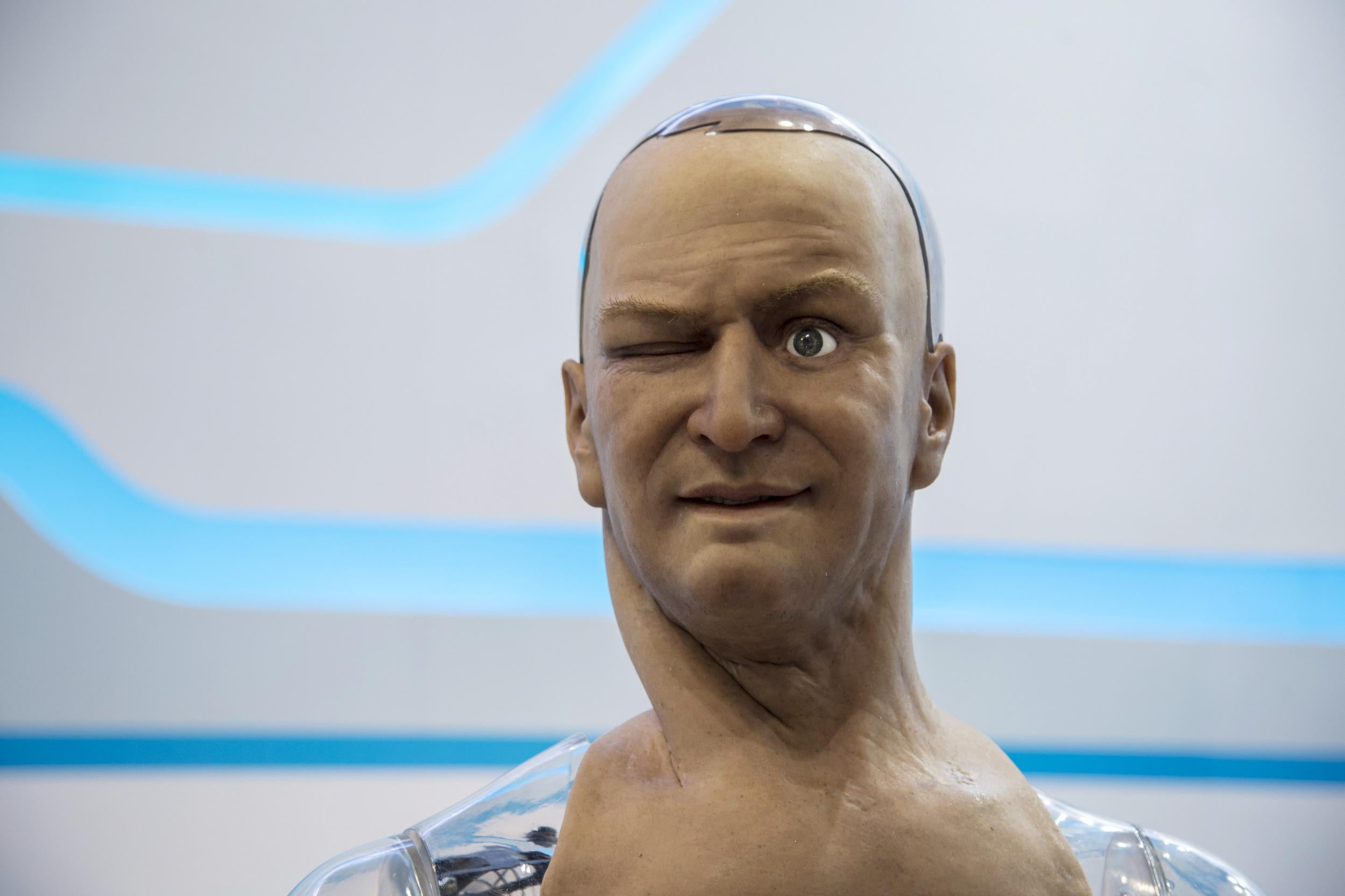Lifelike robots 'joke' about taking over the world, say humans are not 'the most ethical creatures'
Han and Sophia have been trained to act like people

A pair of lifelike robots have debated the future of humanity at a technology conference in Hong Kong.
The machines, named Han and Sophia, discussed people’s limitations and robot’s plans to take over the world.
They also predicted that robots will be able to do “every human job” in the very near future, and called reality shows "silly".
The robots, which have elastic skin, were created by Hanson Robotics, and have been trained to act like humans.
They’re also programmed to learn from each other.
When asked if robots could be moral and ethical at the RISE tech conference, Han said, “Humans are not necessarily the most ethical creatures”, according to AFP.
It also "joked" about believing that the robots’ goal was to take over the world, and claimed, “In 10 or 20 years, robots will be able to do every human job.”
Sophia, meanwhile, said humans have “some ability to reflect and self-modify”, and that she wants to work together with people.
The audience was reportedly “nervously tittering” throughout the partially scripted discussion.
Earlier this year, Stephen Hawking warned that technology needs to be controlled in order to prevent it from destroying the human race.
A report from the University of Oxford and Yale University also found that artificial intelligence will outperform humans in many activities in the near future, including translating languages (by 2024), writing high-school essays (by 2026), driving a truck (by 2027), working in retail (by 2031), writing a bestselling book (by 2049), and working as a surgeon (by 2053).
Some of the experts surveyed by the researchers believe machines will be better than humans at all tasks within nine years.
Join our commenting forum
Join thought-provoking conversations, follow other Independent readers and see their replies
Comments
Bookmark popover
Removed from bookmarks